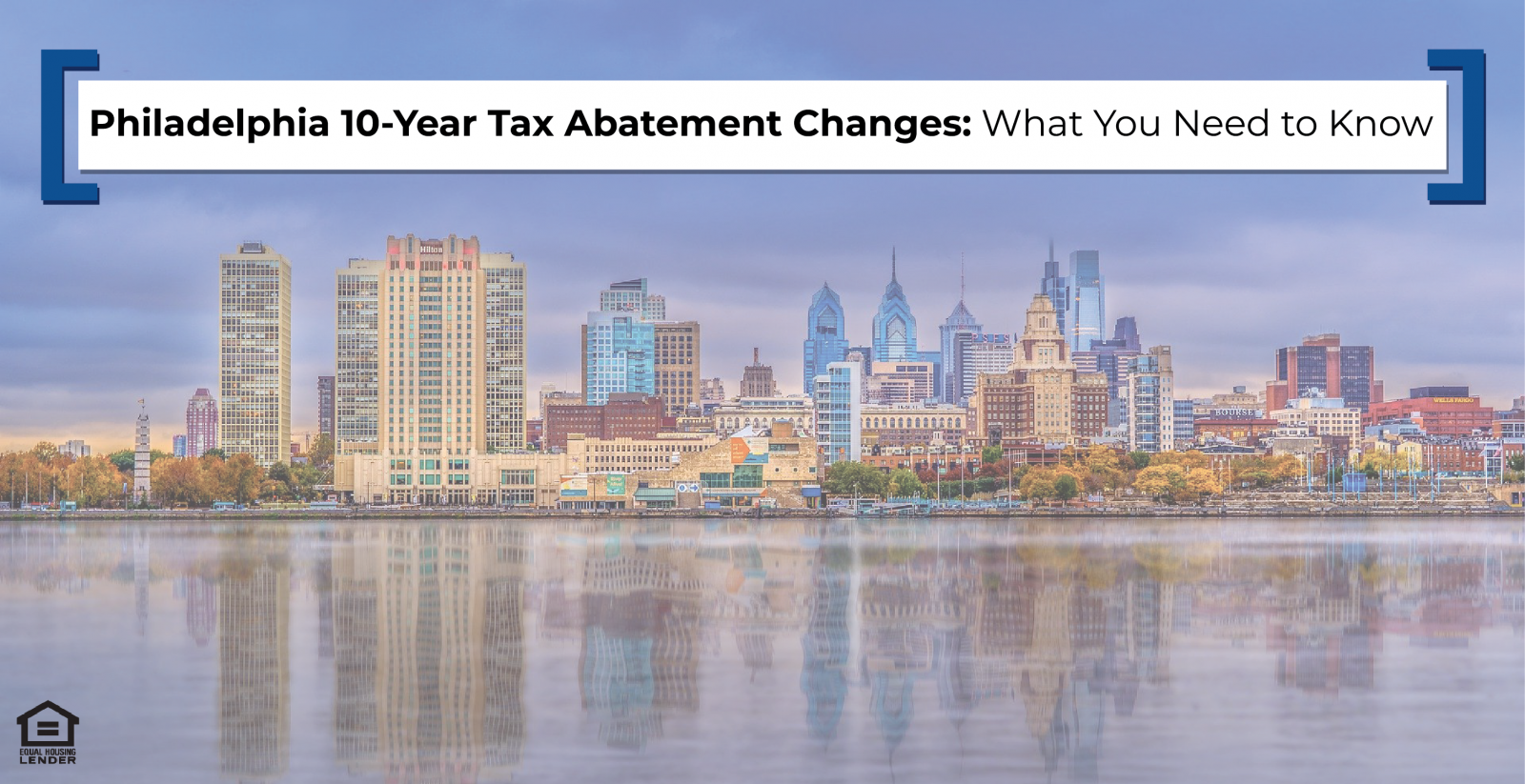Philadelphia 10-Year Tax Abatement Changes: What You Need to Know

After years of debate, rising property taxes and calls for additional school funding has led to some important changes to the 10-year tax abatement in Philadelphia. Here’s everything that you need to know:
What is the 10-Year Tax Abatement?
In short, the 10-year tax abatement has exempted both developers and homeowners from paying taxes, on both new construction and the value of home improvements, for 10 years. The abatement was enacted in its current form back in 2000 with the hope that it would encourage real estate development.
The Pros and Cons of the 10-Year Tax Abatement
The abatement is credited with revitalizing the real estate industry by providing tax incentives for new and improved developments. However, critics of the abatement have indicated towards accelerated gentrification rates and a need for additional funding for city schools.
The first changes were proposed back in 2008, but all have failed to gain sufficient support until the end of 2019. An Inquirer poll conducted in April found that 57% of voters said the abatement is “bad” for the city, while 25% called it “good”.
Supporters of the tax abatement cite it’s success in improving the number of properties and landscape in Philadelphia. The generous tax exemption has sparked plenty of motivation for the development of the real estate industry within the city.
However, critics point out that the city is in a much more advantageous position than it was when the abatement was first introduced. A growth in population and market value has led to a major benefit for the greater Center City while other neighborhoods have seen an increase in property taxes, rather than a break. Additional funding needed for the city and local school districts is at the forefront for the motivation to change the abatement.
What Changes Does the New Bill Bring?
Under the new bill, exceptions for real estate taxes on new residential properties will still start at 100%. However, that amount will decrease by 10% every year, for ten years. Essentially, the initial tax exemption would slowly decrease and disappear after a decade.
The new bill will be effective on Dec. 31, 2020. It is projected to generate approximately $275 million in tax revenue, with 55% of that amount being allocated to city schools.
You are able to continue to take advantage of the current tax abatement until Dec. 31, 2020.
The new legislation requires the city to revisit the abatement every three years.